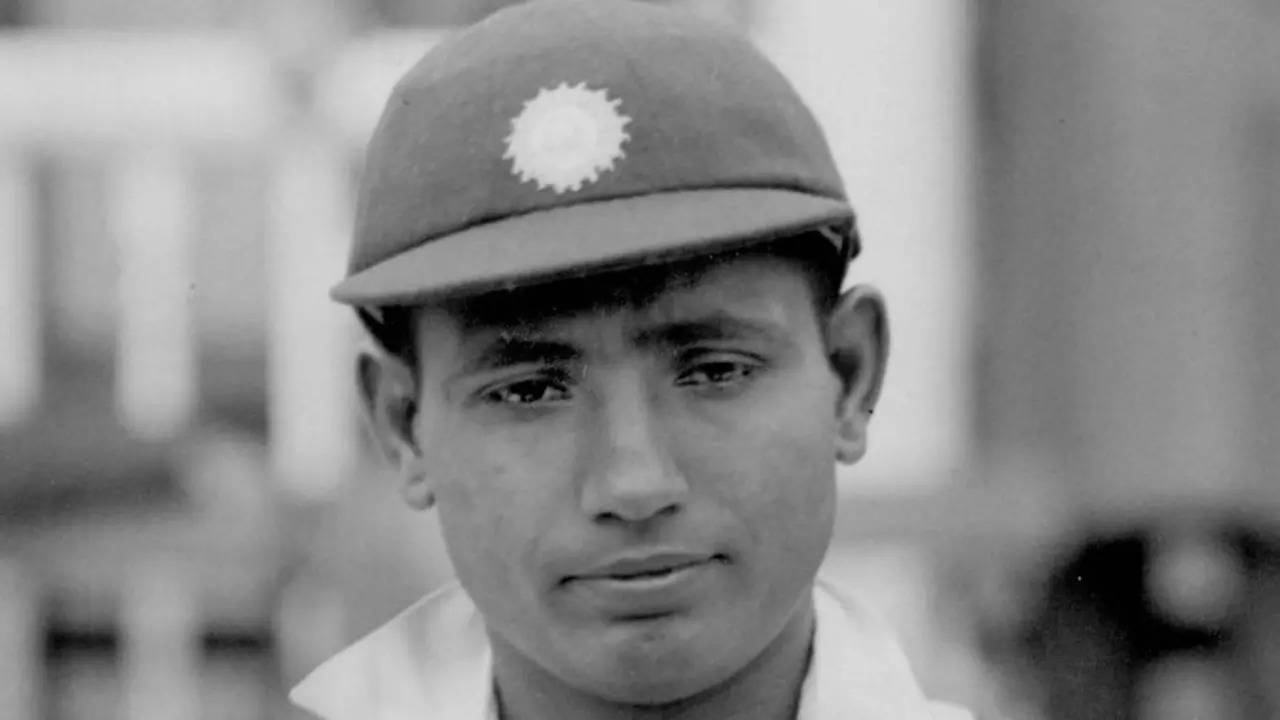In the annals of Indian cricket history, one of the most remarkable episodes involves the legendary Lala Amarnath and the first-ever Irani Cup match held way back in 1960.
Lala, a cricketer known for his fierce determination and sharp mind, had long retired from active cricket by then, but his presence loomed large over the cricket scene in India as he was the chairman of the national selection committee.
The Irani Cup, named after the late ZR Irani, was introduced to put the reigning Ranji Trophy champions against a Rest of India team. It was during this inaugural match that Lala’s audacious decision made headlines.
The match was played at Delhi’s Karnail Singh stadium, also known as Railway stadium, from 18-20 March 1960.
Lala, who had the distinction of scoring the first century for India in his debut Test, was leading the Rest of India team and cricketer Polly Umrigar was the captain of the Bombay team.
In an extraordinary move that shocked everyone, Amarnath decided to send in a player who was not originally in the batting lineup — the 12th man.
During the match, both Lala and the umpires disregarded the rules of cricket. When Lala sustained an injury, he instructed Prem Bhatia, who was designated as the 12th man for the Rest of India team, to bat in his place.
The 12th man Bhatia was allowed to bat in both innings — at No. 9 in the first innings and at No. 3 in second innings — of the first Irani Cup. Bhatia scored 22 and 50 in the game.
The incident remains a testament to Lala’s audacity but who would have known then that after many years later the International Cricket Council (ICC) would come up with a substitute rule where a player who was not originally named in the XI can come out to bat/bowl.
Lala, a prominent figure in Indian cricket history, held the distinction of being the first Indian to lead the national team in ten consecutive Test matches. During his tenure as captain, which spanned 15 Tests, Amarnath achieved a significant milestone for Indian cricket.
Under Amarnath’s leadership, India secured their maiden Test victory against their arch-rivals, Pakistan. This groundbreaking match took place at the Feroz Shah Kotla ground in Delhi in October 1952.
India’s performance was nothing short of dominant, as they comprehensively defeated Pakistan by an innings and 70 runs, asserting their superiority on the cricket field.
Lala, a cricketer known for his fierce determination and sharp mind, had long retired from active cricket by then, but his presence loomed large over the cricket scene in India as he was the chairman of the national selection committee.
The Irani Cup, named after the late ZR Irani, was introduced to put the reigning Ranji Trophy champions against a Rest of India team. It was during this inaugural match that Lala’s audacious decision made headlines.
The match was played at Delhi’s Karnail Singh stadium, also known as Railway stadium, from 18-20 March 1960.
Lala, who had the distinction of scoring the first century for India in his debut Test, was leading the Rest of India team and cricketer Polly Umrigar was the captain of the Bombay team.
In an extraordinary move that shocked everyone, Amarnath decided to send in a player who was not originally in the batting lineup — the 12th man.
During the match, both Lala and the umpires disregarded the rules of cricket. When Lala sustained an injury, he instructed Prem Bhatia, who was designated as the 12th man for the Rest of India team, to bat in his place.
The 12th man Bhatia was allowed to bat in both innings — at No. 9 in the first innings and at No. 3 in second innings — of the first Irani Cup. Bhatia scored 22 and 50 in the game.
The incident remains a testament to Lala’s audacity but who would have known then that after many years later the International Cricket Council (ICC) would come up with a substitute rule where a player who was not originally named in the XI can come out to bat/bowl.
Lala, a prominent figure in Indian cricket history, held the distinction of being the first Indian to lead the national team in ten consecutive Test matches. During his tenure as captain, which spanned 15 Tests, Amarnath achieved a significant milestone for Indian cricket.
Under Amarnath’s leadership, India secured their maiden Test victory against their arch-rivals, Pakistan. This groundbreaking match took place at the Feroz Shah Kotla ground in Delhi in October 1952.
India’s performance was nothing short of dominant, as they comprehensively defeated Pakistan by an innings and 70 runs, asserting their superiority on the cricket field.
